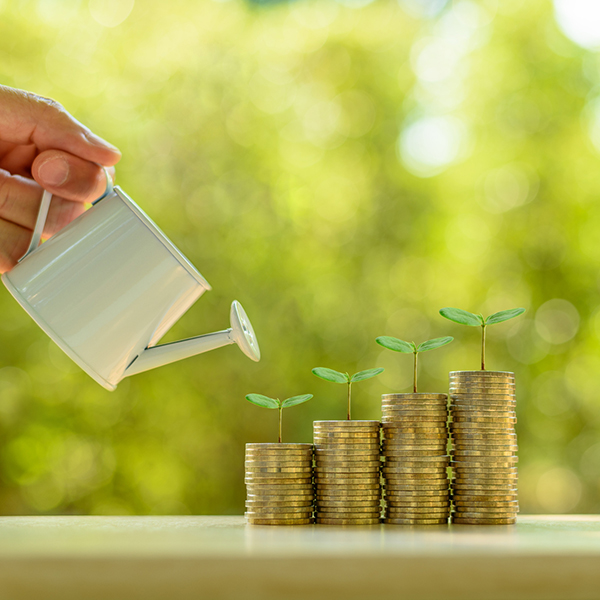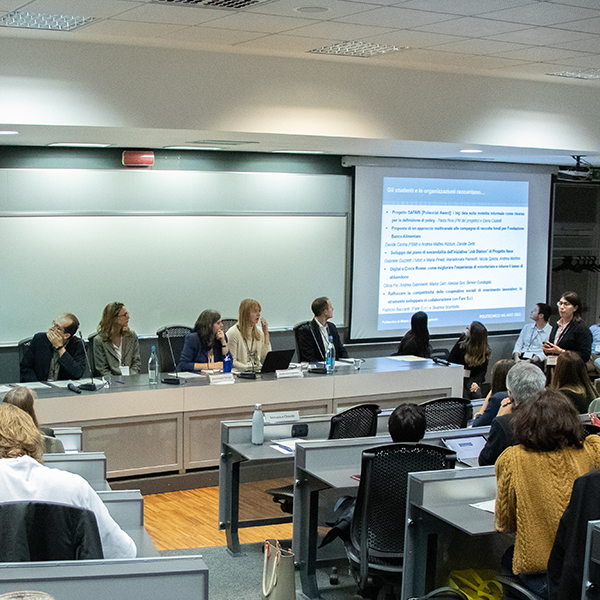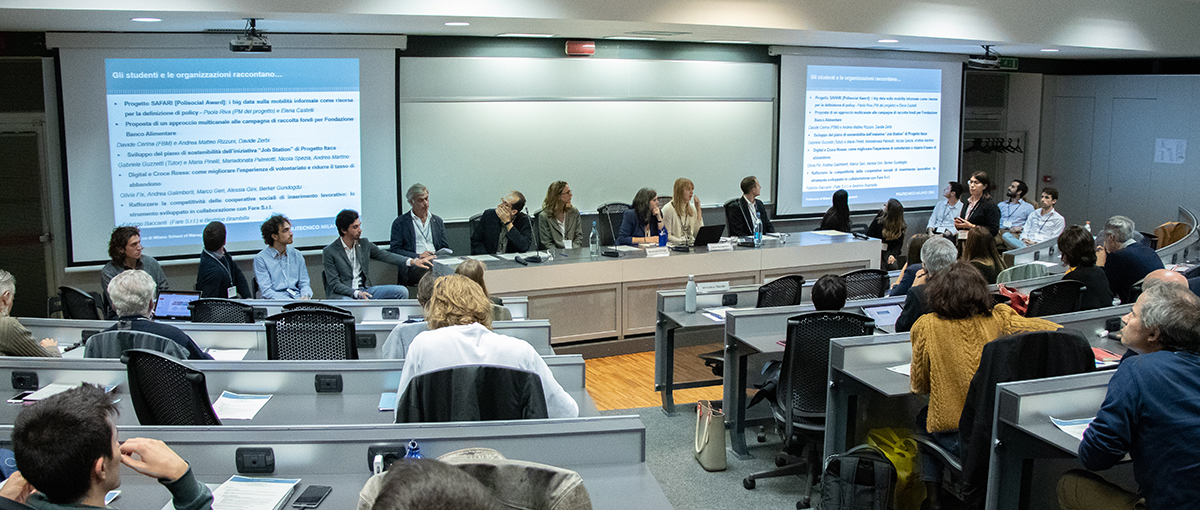
As the second fifth of the 21st century begins, no industry can avoid the challenge of boosting its sustainability. Luxury is no exception to this, but what if responsibility were an inherent part of luxury?
Alessandro Brun, Associate Professor of Quality Management, Director of Global Executive Master of Luxury Management and Founder of the Sustainable Luxury Academy
As the end of 2019 approaches, we are now suddenly realising that a fifth of the 21st century has already passed. And that an idea murmured by a choice few at the turn of the century has now grown to become the buzzword heard everywhere. No sectors can escape from public demand for a more sustainable and ethical business!
This is particularly true when it comes to the premium & luxury segment of most consumer goods sectors: from fashion to jewellery to beauty, the conversation about “responsible luxury” is now ubiquitous.
On 8th November, Prada’s US headquarters played host to a conference entitled “Shaping a Sustainable Future Society”: the third event in the “Shaping a Future” series which, this year, focused on Social Sustainability. On 5th December, Assolombarda (the Lombardy chapter of the Italian Entrepreneurial Association) hosted the event “4sustainability”, which saw 200 players from the textile and leather supply chains collaborating with international coalitions (such as ZDHC, Leather Working Group, Textile Exchange) and leading luxury brands in an attempt to develop reliable and shared measurement systems to assess sustainability performance. On 20th November, the Politecnico di Milano hosted the Responsible Luxury Summit, marking the third anniversary of the founding of the Sustainable Luxury Academy. This is merely the tail end of an extremely intense Milan autumn season for me and my team at the Sustainable Luxury Academy: earlier on, 10 Corso Como (a concept shop blending lifestyle, culture and commerce) hosted “A New Awareness”, whilst the Fashion Film Festival Milano hosted the conversations “FFFMilanoForGreen”.
It is important to explain why sustainable luxury is not a trend, let alone a passing fad. Sustainability is one of the central themes of the paradigm shift taking place in the business of luxury.
Before illustrating what is going to happen in the luxury sector in the 2020s, let us briefly recap what has happened to luxury iver the past 3 decades. In December 1998, professors Jose Luis Nueno and John A. Quelch published a paper in Business Horizons entitled “the Mass Marketing of Luxury”. They explained the reasons behind the double-digit worldwide growth of the luxury market since the mid-1990s, and concluded the paper highlighting a challenge, namely that top managers of luxury brands would have to decide “how far to democratise the brand through line extensions, junior product lines, affordable accessories and expanding distribution.”
This was extremely effective – perhaps even too effective. In 2007, American journalist Dana Thomas published a very illuminating report on how managers of top luxury brands had addressed the above challenge, and asked some questions worth pondering: Has the luxury of some products got lost? Have prices gotten out of hand? Has distribution become too widespread? In fact, the renowned Altagamma Worldwide Luxury Market Monitor labels the period from 1994 to 2000 as the “sortie du temple” of luxury brands, followed – in the years 2001-2008 – by the democratisation of luxury.
Why did this happen? As per Nueno and Quelch’s writings, the “nouveau riche […] can afford to indulge in the purchase of luxury brands, but lack the experience and confidence to discriminate”. What happened during the democratisation was a surge in the middle-class consumption of luxury goods. This global trend is called “trading up” (a neologism coined by American authors Silverstein and Fiske in their book “Trading Up: The New American Luxury”). As such, the middle class can also afford (albeit less frequently) to indulge in the purchase of luxury brands nowadays.
Whilst the publication of “the Mass Marketing of Luxury” marked, on the one hand, the beginning of the democratisation of luxury, it also heralded, on the other, the death of luxury as we (at least the lucky ones) knew it.
What happened in the first two decades of the third millennium is clear to everybody. According to the Altagamma report published in spring 2019, the global market of personal luxury goods grew from USD 76B in 1996 to USD 260B in 2018.
Given the evolution of the past few years, both in terms of Personal Luxury Goods and in the luxury sector more generally, it is now important to look ahead and try to understand what is about to happen. Global trends in Luxury in 2019 are well summarised in the NExTT framework by CB Insights, under which which trends are classified according to their market strength and industry adoption:
- Trends with a high level of adoption but low strength are considered Transitory: Attracting Millennials with Collaboration is classified in this group.
- RFiD Tagging, Authentication Tech, Ethical Consumption and Lab-grown Luxury Materials all belong to the Threatening trend group: adoption is still low, but their strength is high.
- Necessary trends are characterised by both high strength and widespread adoption: here we have Pop-Ups, the Resale Channel, and Luxury Streetwear.
- Trends like Luxury Goods on the Blockchain are considered Experimental, due to their low strength and low adoption level.
Here it is quite easy to envisage a scenario in which multiple trends are pointing in the same direction. Luxury brands cannot pretend to be blind to the power of millennials. Their voices called for bulky trainers – and all brands reacted by offering Luxury Streetwear. But millennials are also asking for more transparency, exploiting simple solutions (hence why a “simple” RFiD tag is considered Threatening whilst the Blockchain is not relevant at the moment) to provide more visibility throughout the supply chain. They are requesting environmentally-sustainable practices – calling for brands to stop the use of controversial materials (lab-grown materials could be the solution to such issues as incidental animal cruelty or materials which negatively affect endangered species, as well as ’blood’ diamonds) – as well as establish socially-responsible practices – to the point that ethically-responsible consumption poses a significant threat to some brands.
Before taking any action, brands should seek a deeper understanding of the meaning of being responsible.
Being responsible nowadays means being open and embracing new technologies – to guarantee cleaner processes, a more efficient use of resources, more opportunities to reduce, reuse, recycle, – whilst at the same time going back to the industry’s roots – the heritage of luxury is in the artisanal processes, craftsmanship and savoir-faire, where the talented artisan was at the heart of the company, never to be considered a mere “human resource” in a big industrial, profit-oriented organisation.
Being responsible also means using storytelling in the right way: that is, using it as a means to connect or reconnect disconnected departments in the organisation. European artisans in the Middle Ages, the age of craftsmanship, were one-man shows, taking care of sales, product design and manufacturing. Today, the storytelling of a truly luxurious brand has to focus on the supply chain. The heritage of some brands – and even of some iconic items – is deeply rooted in sustainability. One need only think of the history of Ferragamo’s cork wedge shoes and the Gucci bamboo bag, two defining items in the history of fashion, both launched in years in which – due to sanctions – Italian companies could not make use of very basic and desperately-needed materials. Italian genius proved stronger than adversity, though: in the 20s, during the dictatorship in Italy, it was not possible to import steel from Germany; Ferragamo replaced the steel shank necessary to support women’s shoes, inventing the world-famous wedge using cork from Sardinia; meanwhile, in 1947, post-WWII, Gucci launched a new bag whose handles were made out of bamboo, a material that could be imported from Japan without restrictions.
The Swiss shoemaker Bally was founded in 1851, as the result of Carl Franz Bally’s desire to create more jobs and improve the lives of local residents. In its golden years (in 1916, when the rest of Europe was crippled by the World War, it had 7,000 employees), Bally was providing employees with unmatched social and healthcare benefits.
When somebody asks me whether sustainable luxury is an oxymoron or an opportunity, I can barely contain my smile when mentioning the above cases. Sustainable Luxury is neither an oxymoron nor an opportunity. True luxury is inherently, quintessentially sustainable by its very nature. Hence, sustainable luxury is a necessity.
I dream that, one day, all consumers will say “If it ain’t sustainable, it ain’t luxury”. That day is coming soon.















